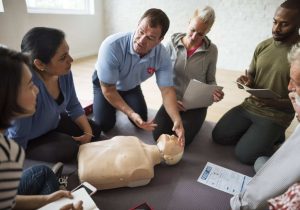Cosmetic Dentistry for Musicians — Improving Oral Health for Wind Instruments and Performance

Musical Instruments help children learn discipline, express their imaginations, and develop a sense of community. So, it is no surprise that many parents in Houston urge their children to play. Many parents are unaware of the link between musical instruments and dental health. Contact a facility for cosmetic dentistry in Houston, TX, to find out about the possible adverse effects of woodwind and brass instruments, as well as some essential prevention strategies.
Ways to improve the oral health of musicians playing wind instruments
It is vital to maintain excellent oral hygiene. Failure to do so can have a negative impact on the look and function of your smile. With that in mind, here are some things to consider when it involves woodwind or brass instruments:
- Bacteria: If you play constantly, your instrument can quickly collect spit and bacteria.
- Lip and tooth trauma: To achieve the desired sound, musicians must swiftly hold their instruments against their mouths. Unfortunately, this could harm their lips and delay the growth of their teeth.
- Head and neck posture: Head and neck posture – While a violin is not a wind instrument, the position you must hold your neck and head in order to play appropriately might cause bite problems, such as cross-bites.
What are the preventive measures?
In dentistry, prevention is important. Put yourself up for success by following the best practices described below:
-
Cleaning your teeth
You should develop the habit of cleaning your musical instrument after each usage. This will stop harmful bacteria from reaching their mouth and reduce their chances of acquiring dental disorders such as tooth decay.
-
Ask your dentist about a mouthguard
To protect your teeth and gums, request a personalized mouthguard for them to wear while playing.
-
Follow a good dental care routine
Brushing twice a day, flossing every day, visiting their dentist every six months for dental exams, and cleaning are all essential components of good oral hygiene.
-
Schedule an appointment with your dentist
If you have a kid playing wind instruments, you should contact an orthodontist around the age of seven. Although this is a young age, addressing issues like overcrowding and jaw misalignment early on can help prevent complications in the future.
What are the types of dental problems encountered?

Among the musicians who reported pain and problems, 28% had trouble with orthodontic equipment or tooth movement. 22% of respondents reported pain in their mandible (lower jaw) and TMJ. 11% of respondents experienced tooth and gum pain, while 6% experienced discomfort caused by tooth wear and grinding (bruxism). Mouth ulcers contributed to 6% of the challenges reported, while muscle damage or focal dystonia (inability of a muscle to respond) impacted 3% of the musicians polled.
Aphonia (loss of voice), sore throats (pharynx, larynx), soft palates, hyperacusis (lack of tolerance to usual environmental sounds), pain and cracks in the teeth resulting from the instrument vibrating with the teeth, and temporary absence of feeling or sensitivity in the lips were among the other problems that twenty-four percent of musicians reported.
How can you treat these problems?
Most dentists are unable to understand or relate to the anxiety that brass or woodwind players experience when an anticipated or complex dental operation changes their embouchure and, in effect, ends their careers. Your physician will recognize the specific requirements for the issue he is trying to treat. His approach to correcting musical matters will focus on minor, reversible adjustments to the teeth or bite, especially with the front teeth.
Furthermore, he will advise you to preserve your teeth and bite using plaster models, which is the best protection against unanticipated or accidental dental problems. It could be impossible to get over the disappointment of trying to play with new oral or cosmetic dentistry treatments that fail to work without these plaster study models.








